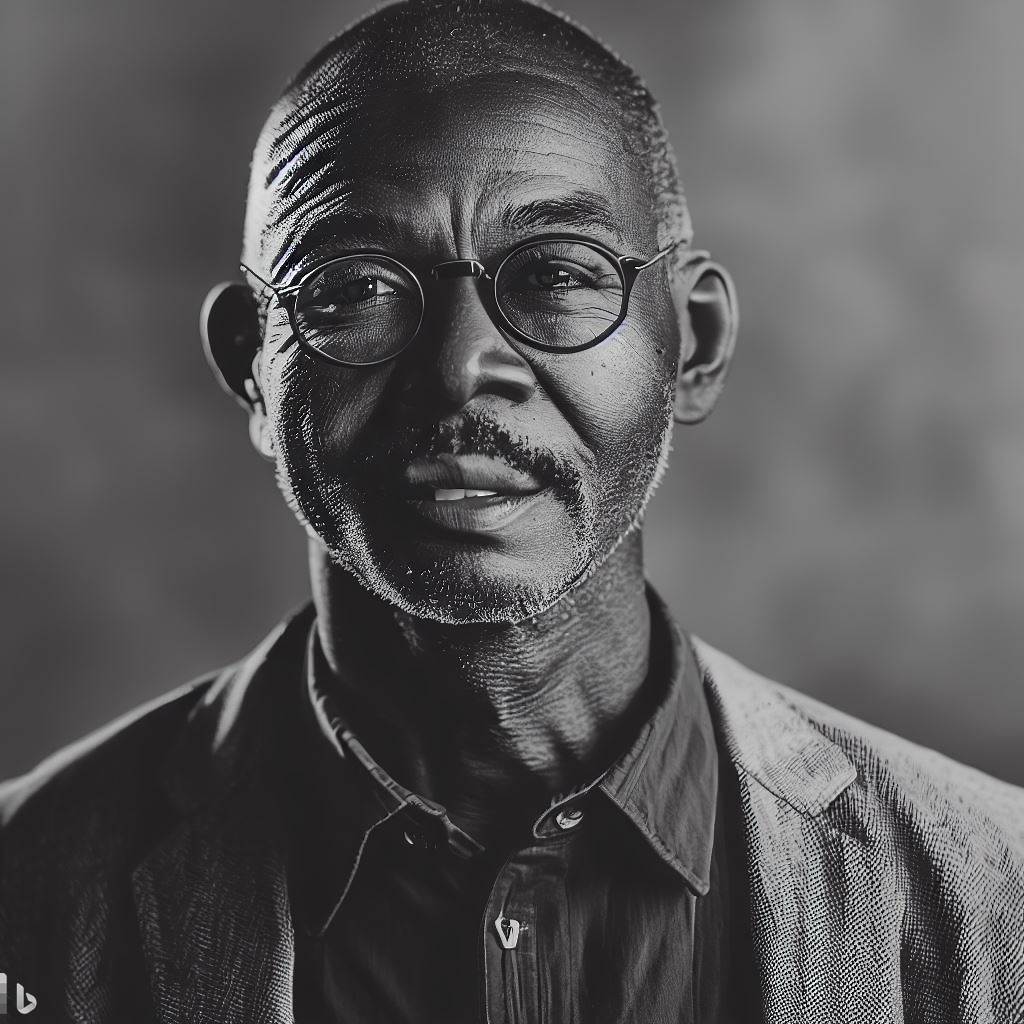Introduction
A Brief overview of Nigerian film industry
The Nigerian film industry, known as Nollywood, is the second-largest in the world, producing thousands of movies annually.
Importance of scriptwriters in the entertainment industry
Scriptwriters play a pivotal role in the success of Nigerian films as they are responsible for creating captivating storylines and compelling dialogues.
Thesis statement: Prominent Nigerian scriptwriters have contributed significantly to the growth and success of Nigerian films.
Nigerian films have gained international recognition and earned critical acclaim due to the talent and creativity of its scriptwriters.
The first prominent Nigerian scriptwriter is Tunde Kelani, known for his cultural and historical films.
Kelani’s movies such as “Saworoide” and “Maami” have not only entertained audiences but also provided social commentary.
Amaka Igwe is another notable scriptwriter who revolutionized the Nigerian television industry with her series “Checkmate” and “Fuji House of Commotion.”
Her scripts highlighted social issues and showcased talented actors, making her a trailblazer in the industry.
Kemi Adesoye is a renowned scriptwriter who has contributed to the success of popular movies like “The Figurine” and “Phone Swap.”
Adesoye’s ability to create complex characters and unique storylines has won her several awards.
Tunde Babalola, known for films like “Oyenusi” and “October 1,” possesses a flair for blending history and entertainment seamlessly.
His scripts capture the essence of Nigerian culture while addressing important themes.
Basically, the contributions of prominent Nigerian scriptwriters cannot be underestimated.
Their creativity and storytelling skills have elevated Nigerian films to new heights, captivating audiences worldwide.
Nkem Owoh – The Comic Genius
Background information on Nkem Owoh
Nkem Owoh, born on October 17, 1958, is a renowned Nigerian actor and comedian. With his exceptional talent and unmatched humor, he has become one of the most beloved figures in the Nigerian film industry.
Nkem Owoh hails from Amagu Village in Udi, Enugu State, Nigeria.
His iconic role as Osuofia in “Osuofia in London”
Nkem Owoh’s iconic portrayal of a comedic character named Osuofia in the movie “Osuofia in London” shot him to international fame.
Released in 2003, this hilarious film follows the adventures of Osuofia as he experiences the cultural shock of London.
The movie showcases Nkem Owoh’s exceptional talent in bringing humor to the screen through his impeccable timing, funny expressions, and unique delivery of dialogues.
His portrayal of Osuofia was so natural and entertaining that it instantly became a classic in Nigerian cinema.
Impact of Nkem Owoh on Nigerian comedy films
Nkem Owoh’s contribution to Nigerian comedy films cannot be overstated. He has revolutionized the genre and set a high standard for comedic performances.
His ability to connect with audiences through laughter has made him a household name and a symbol of Nigerian comedy.
By infusing his characters with eccentricity, wit, and relatability, Nkem Owoh has brought Nigerian comedy films to the forefront of the international film industry.
He has inspired a new generation of actors and comedians to explore the power of humor and storytelling.
Other notable films written by Nkem Owoh
Apart from his iconic role as Osuofia, Nkem Owoh has written and featured in several other remarkable films. Some notable ones include “Osuofia in London 2,” “Osufia goes to School,” and “My Driver.”
These movies continue to showcase his comedic prowess and entertain audiences worldwide.
In “Osuofia in London 2,” Nkem Owoh takes the character of Osuofia on another hilarious adventure, this time exploring the challenges of living in London as an African immigrant.
The film further solidifies his status as an exceptional comic genius.
“Osufia goes to School” explores the comedic scenarios that unfold when Osuofia, a middle-aged man, decides to enroll in school.
This film highlights Nkem Owoh’s versatility as an actor, as he effortlessly transitions from playing a comedic adult to capturing the innocence and curiosity of a student.
“My Driver” showcases Nkem Owoh’s ability to blend comedy with compelling storytelling. He plays the role of a driver who becomes unexpectedly entangled in a web of mysterious events.
This film demonstrates his range as a performer and his ability to engage audiences with his captivating performances.
Essentially, Nkem Owoh is an extraordinary talent in the Nigerian film industry.
Through his iconic role as Osuofia in “Osuofia in London” and his influence on Nigerian comedy films, he has left an indelible mark on the genre.
With his exceptional wit and unique brand of humor, Nkem Owoh continues to bring joy and laughter to audiences worldwide.
Read: How to Navigate the Nigerian Scriptwriting Industry
Tunde Kelani – Portraying Cultural Heritage
Background information on Tunde Kelani
- Tunde Kelani is a renowned Nigerian scriptwriter, filmmaker, and producer.
- He was born on February 26, 1948, in Lagos, Nigeria.
- Kelani studied at the London Film School and started his career in the Nigerian Television Authority (NTA).
- He later established his production company, Mainframe Film and Television Productions.
- Kelani’s works are highly acclaimed for their focus on Nigerian culture, tradition, and societal issues.
Focus on his culturally-rich storytelling approach
- Kelani’s storytelling approach emphasizes the preservation and celebration of Nigeria’s cultural heritage.
- He portrays authentic Nigerian stories, customs, and values in his films, making them relatable to the audience.
- His scripts often incorporate Nigerian proverbs, folktales, and indigenous languages to enrich the cultural experience.
- Kelani’s attention to detail in showcasing traditional attire, music, dance, and rituals enhances the visual and auditory experience.
Notable films showcasing Nigerian cultural heritage
- “Saworoide” (1999): This film explores the power dynamics and corruption in a fictional Yoruba town.
- “Maami” (2011): A heartwarming story of a single mother’s struggles and determination to provide for her son.
- “Thunderbolt: Magun” (2001): It delves into the complexity of love, marriage, and infidelity in Nigerian society.
- “Dazzling Mirage” (2014): This film tackles the stigma associated with albinism and the pursuit of love and self-acceptance.
Influence of Tunde Kelani on promoting tradition through scriptwriting
- Kelani’s works play a significant role in preserving, promoting, and educating the younger generation about Nigerian culture.
- His films serve as a bridge between the older and younger generations, fostering dialogue and understanding.
- Kelani’s dedication to cultural authenticity inspires aspiring scriptwriters to embrace their heritage in storytelling.
- His films have garnered international recognition, showcasing the richness and diversity of Nigerian cinema and culture.
- Kelani has also mentored and supported young Nigerian filmmakers, ensuring the continuity of cultural storytelling.
In essence, Tunde Kelani is an exceptional Nigerian scriptwriter who uses his films to portray and celebrate the country’s cultural heritage.
His culturally-rich storytelling approach, attention to detail, and focus on authentic Nigerian stories make his films a unique and valuable contribution to the preservation and promotion of tradition.
Through his works, Kelani continues to influence and inspire future generations of scriptwriters, ensuring that Nigerian culture thrives in the realm of cinema.
Read: DJ Equipment Essentials: The Nigerian DJ’s Starter Kit

Kemi Adesoye – Addressing Social Issues
Background information on Kemi Adesoye
Kemi Adesoye is a renowned Nigerian scriptwriter who has made significant contributions to the country’s film industry. She was born and raised in Lagos.
Highlighting her ability to tackle important social issues
Adesoye possesses a remarkable talent for addressing crucial social issues through her screenplays. Her scripts often shed light on the realities faced by people in Nigeria.
Notable films addressing social and political issues in Nigeria
Adesoye’s work includes several noteworthy films that explore and critique social and political issues in Nigeria. Some of these films include:
- “Silent Whispers”: This movie explores the rampant corruption in Nigeria and its impact on ordinary citizens.
- “Breaking the Chains”: Adesoye’s script delves into the issue of human trafficking, raising awareness about this prevalent crime.
- “Echoes of Injustice”: The film tackles the theme of social injustice and the struggles faced by marginalized communities.
- “Fading Dreams”: Adesoye sheds light on the challenges faced by young people in pursuing their dreams amidst societal constraints.
Kemi Adesoye as a leading scriptwriter for societal change
Adesoye’s commitment to using her scripts as a medium for societal change has earned her recognition and respect. She believes in the power of storytelling to bring about positive transformation.
Adesoye’s scripts not only entertain but also serve as a powerful tool to address social issues, spark conversations, and provoke thought among viewers.
Through her work, Adesoye echoes the voices of the marginalized, shining a spotlight on their struggles, and advocating for justice and equality.
Adesoye’s ability to weave compelling narratives while tackling significant social issues has made her a renowned figure in the Nigerian film industry.
Her scripts challenge societal norms, promote empathy, and encourage viewers to actively engage in addressing social injustices.
In an industry often criticized for superficiality, Adesoye stands as a beacon of hope, using her creative prowess to effect meaningful change.
Her dedication to addressing social issues through film has paved the way for future scriptwriters to follow in her footsteps.
In summary, Kemi Adesoye’s impact as a scriptwriter cannot be understated. Her ability to tackle important social issues in Nigeria is commendable.
Through thought-provoking narratives, she highlights the realities faced by the Nigerian society and encourages dialogue, empathy, and change.
Adesoye’s films serve as a powerful tool for societal transformation, shedding light on issues often overlooked or ignored.
As her influence continues to grow, Adesoye remains an inspiration for aspiring scriptwriters who aspire to use their craft to address social issues and create positive change.
Read: The Rising Influence of Afrobeat in DJ Culture in Nigeria
Biyi Bandele – Adapting Literature to Film
Background information on Biyi Bandele
Biyi Bandele is a renowned Nigerian scriptwriter and filmmaker, known for his expertise in adapting literary works to film.
Born in 1967 in Nigeria, Bandele initially pursued a career in journalism before venturing into scriptwriting and filmmaking.
He studied Drama at the University of Nigeria, Nsukka, and later obtained a master’s degree in African Literature from the University of Ife.
Throughout his career, Biyi Bandele has garnered numerous accolades and recognition for his work in both theater and film.
He has written and directed several stage plays and films, showcasing his talent in storytelling and adaptation.
Discussing his expertise in adapting literary works to film
Biyi Bandele’s proficiency lies in his ability to transform classic literary works into captivating cinematic experiences.
He possesses a deep understanding of the source material and meticulously weaves the narrative into a visual medium, preserving the essence and themes of the original text.
Bandele’s meticulous approach ensures that the adaptation remains faithful to the author’s intention while embracing the unique possibilities of the film medium.
His attention to detail and his skill in capturing the emotions and atmosphere of the original works make his adaptations stand out.
Notable film adaptations and their impact
One of Biyi Bandele’s most notable film adaptations is “Half of a Yellow Sun,” based on Chimamanda Ngozi Adichie’s critically acclaimed novel.
The film, released in 2013, garnered international recognition and praise. Bandele skillfully brought to life the complex characters and historical context, immersing the audience in the Nigerian-Biafran War.
Another noteworthy adaptation is “Fela,” which explores the life of Nigerian musician Fela Anikulapo Kuti.
Bandele successfully captures Fela’s revolutionary spirit and the vibrant Afrobeat movement, creating a visually stunning and emotionally resonant film.
Biyi Bandele’s contribution to Nigerian cinema through adaptation
Biyi Bandele’s contributions to Nigerian cinema are invaluable. His adaptations bring Nigerian literature and stories to a wider audience, both locally and internationally.
By bridging the gap between literature and film, Bandele enriches the cultural landscape of Nigeria and promotes its literary heritage.
Moreover, Biyi Bandele’s success in adapting literary works to film paves the way for other scriptwriters and filmmakers, inspiring them to explore the vast potential of Nigerian literature as a source of storytelling in cinema.
Bandele’s work serves as a testament to the power of adaptation to transcend mediums and connect with diverse audiences.
In fact, Biyi Bandele is a prominent Nigerian scriptwriter and filmmaker, renowned for his expertise in adapting literary works to film.
His meticulous approach and deep understanding of the source material have resulted in remarkable film adaptations that faithfully capture the essence of the original texts.
Through his work, Bandele has made a significant contribution to Nigerian cinema, enriching the cultural landscape and promoting Nigerian literature on a global scale.
Read: The Evolution of Scriptwriting in Nigeria’s Film Industry
Conclusion
Recap of the importance of scriptwriters in Nigerian films
Scriptwriters play a vital role in Nigerian films, as they are responsible for creating captivating stories that engage and entertain audiences.
Emphasize the contributions of the prominent Nigerian scriptwriters mentioned
The prominent Nigerian scriptwriters mentioned in this chapter have made significant contributions to the Nigerian film industry.
They have written compelling stories that have resonated with audiences and have helped raise the standard of Nigerian films.
Final thoughts on the impact and future of Nigerian scriptwriters
Nigerian scriptwriters have made great strides in recent years, and their impact can be felt in the quality and popularity of Nigerian films.
As the industry continues to grow, the future looks promising for scriptwriters who have the talent and creativity to tell unique and engaging stories.
Their contribution is essential in shaping the Nigerian film industry and ensuring its continued success.




